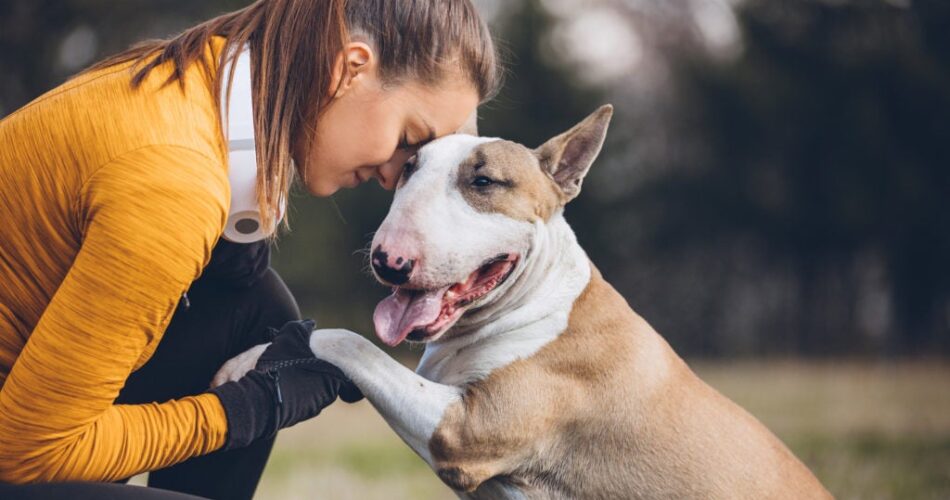A greyhound who is obese requires a low-calorie diet and regular exercise. Obesity in dogs can lead to various health issues and should be addressed promptly.
Obesity is a significant problem among dogs, and greyhounds are not an exception. This breed is prone to weight gain due to their laid-back lifestyle, and if not appropriately managed, this can lead to health problems like arthritis and heart diseases.
As a responsible dog owner, ensuring your greyhound stays in good shape is vital. Feeding them a well-balanced diet and ensuring they get enough exercise is the first step to keeping their weight in check. In this article, we’ll discuss the causes of obesity in greyhounds, how to identify if your dog is overweight, and tips on managing their weight.

Credit: www.hillspet.com
Understanding Obesity In Greyhounds
Greyhounds are a unique breed known for their speed and grace on the racetrack. However, like any other breed, obesity can become a problem for these dogs. Obesity in greyhounds can lead to numerous health issues, including joint problems, diabetes, and heart disease.
What Causes Obesity In Greyhounds?
There are several causes of obesity in greyhounds, which include:
- Overfeeding or feeding inappropriate diets
- Lack of exercise or activity
- Certain medications
- Hypothyroidism
- Genetic predisposition
To keep your greyhound healthy, it’s essential to understand the causes of obesity and how to prevent them.
The Health Risks Associated With Obesity In Greyhounds
Obesity in greyhounds can lead to significant health issues, such as:
- Joint problems: Greyhounds are prone to joint problems, and extra weight can exacerbate these issues. It can also lead to arthritis and other joint-related issues.
- Diabetes: Obesity can cause insulin resistance and lead to type 2 diabetes, which can be extremely debilitating for dogs.
- Heart disease: Obesity puts extra strain on your greyhound’s heart, leading to heart disease, a condition that can severely impact their quality of life.
How To Identify If Your Greyhound Is Overweight?
It can be challenging to tell if your greyhound is overweight because of their muscular build and thin coat. However, some signs can help you identify if your greyhound is overweight, such as:
- Difficulty breathing or shortness of breath
- Fat deposits around the ribcage, flank, or tailhead
- Difficulty walking or being inactive
- Inability to feel their ribs when petting them
If you notice any of these signs, it’s time to consult with your veterinarian and discuss the best ways to help your greyhound lose the excess weight.
Understanding obesity in greyhounds, its causes, health risks, and how to identify if your greyhound is overweight is essential. As a responsible pet owner, it’s your responsibility to ensure that your dog lives a healthy and happy life. By providing them with the right diet, exercise, and care, you can help them maintain a healthy weight and avoid obesity-related health issues.
Diet And Nutrition: The Key To Losing Weight
Obesity in greyhounds can lead to several health problems that can reduce their lifespan and quality of life. However, the good news is that it is possible to manage your greyhound’s weight with proper diet and nutrition. In this section, we will discuss the key role of a balanced diet in managing weight, selecting the right food for your greyhound, and the importance of portion control and feeding frequency.
The Role Of A Balanced Diet In Managing Weight In Greyhounds
A balanced diet is essential to keep your greyhound healthy and active while also maintaining the ideal weight. Here are some key points:
- A balanced diet consists of a mix of proteins, carbohydrates, fats, fibers, vitamins, and minerals.
- A diet rich in high-fiber food can help your greyhound feel fuller for longer and reduce their calorie intake.
- Feeding a high-protein diet can help maintain lean muscles and boost metabolism, allowing your greyhound to burn more calories.
- Avoid diets rich in carbohydrates as they often contribute to weight gain.
Selecting The Right Food For Your Greyhound
Choosing the right food for your greyhound can help manage their weight and overall health. Here are some key points to consider:
- Look for high-quality dog food brands that are specifically formulated for greyhounds.
- Consult your veterinarian before switching your dog’s food.
- Avoid giving table scraps and treats as they can contribute to excess calorie intake.
Portion Control And Feeding Frequency
Portion control and feeding frequency can help reduce your greyhound’s calorie intake, which is essential for weight loss. Here are some key points:
- Divide their daily food intake into multiple small meals instead of one large meal.
- Use a measuring cup to make sure you’re giving them the right portion size.
- Avoid free-feeding or leaving food out all day.
By following these diet and nutrition tips, you can help your obese greyhound lose weight and lead a healthier, happier life. Remember to consult your veterinarian before making any significant changes to your dog’s diet.
Exercise And Physical Activity: The Right Way To Get Moving
Obese greyhound: exercise and physical activity the right way to get moving
As a greyhound owner, you know how important it is to keep your pup healthy and happy. One of the areas that pet owners often struggle with is ensuring that their pups receive regular physical activity. Regular exercise is particularly important for greyhounds, which are naturally active and energetic animals.
If your greyhound is overweight, this can put a significant strain on their overall health and limit the quality of life. Here are some tips on how to get your obese greyhound moving in a safe and engaging way:
Importance Of Regular Exercise For Greyhounds
- Regular exercise is beneficial for greyhounds as it helps with weight management, strengthens muscles and bones, improves circulation and enhances overall health.
- Lack of regular exercise can lead to health problems like obesity, heart disease, joint pain, and diabetes.
- It’s crucial to integrate regular physical activity into your greyhound’s routine to keep them healthy and happy.
Low-Impact Activities For Obese Greyhounds
- For obese greyhounds, low-impact activities like walking, gentle jogging, swimming, and stretching are ideal.
- Avoid activities like racing, jumping or any high-impact exercises until the dog has achieved a healthy weight.
- Low-impact activities should be done gradually and for shorter periods initially, to avoid putting too much strain or stress on their body.
Incorporating Playtime And Mental Stimulation Into Your Pup’S Routine
- Toys provide mental stimulation and can help your pup occupy their mind while also being physically engaging.
- Create a playtime routine that focuses on engagement with you and other family members for your greyhound to get used to socialization and mental exercise.
- Consider dog puzzles or games that incorporate their favorite toys and treats to increase mental engagement.
- Introducing fun exercises like hide and seek can create a great way to keep your pup entertained.
Overall, physical activity is a fantastic way to keep your greyhound healthy and happy. When starting a new exercise routine, it’s important to take it slow and supervise them to ensure they’re not in pain or discomfort. A healthy diet and regular exercise can increase the quality and length of your greyhound’s life; so, as a loving pet owner, take action to keep them fit and healthy.
Lifestyle Changes And Support System
Obese Greyhound: Lifestyle Changes And Support System
Obesity is a common problem faced by domestic pets. Greyhounds are known for their lean figures, but sometimes they can also become overweight. It can cause serious health issues if left unchecked.
Healthy Habits That Can Aid In Weight Loss
There are several things you can do to help your overweight greyhound lose weight. Here are some healthy habits that can aid in weight loss:
- Serve a balanced diet with a low-calorie count.
- Provide ample opportunities for exercise, such as structured walks, playtime, or dog sports.
- Be cautious of commercial dog treats and table scraps as they can quickly add up in calories.
- Focus on providing enough water for hydration, and prevent overeating at the same time.
- Ensure that your greyhound does not skip any meals as this can trigger overeating later.
Family Involvement And Support In The Weight Loss Journey
Having a supportive environment can make a big difference in your greyhound’s weight loss journey. Involve your family members in the process, and try these tips to make weight loss a fun and beneficial experience for everyone:
- Schedule regular exercise routines throughout the day and involve family members in them.
- Prepare homemade healthy dog treats to avoid overfeeding with commercial dog treats.
- Establish clear communication with family members to avoid overfeeding or conflicting exercise schedules.
- Use positive reinforcement techniques such as praise and attention to encourage healthy behaviour.
- Always consult your vet if you have any concerns or need extra guidance.
Reasons To Consider Working With A Vet Or Professional Trainer
Working with a vet or professional trainer can offer a tailored approach to your greyhound’s weight loss. Some reasons to consider working with a vet or professional trainer include:
- They can help you devise a customised activity and meal plan that aligns with your greyhound’s unique needs and preferences.
- They can provide access to additional resources, tools, and support systems.
- They can help measure your greyhound’s progress and adjust their plan accordingly.
- They can identify any underlying health issues that could be impacting their weight, such as hypothyroidism or cushing’s disease.
- They can provide advice on how to improve your greyhound’s well-being and behaviour beyond just for weight loss.
Frequently Asked Questions Of Obese Greyhound
What Are The Health Risks Of Obesity In Greyhounds?
Obesity can lead to various health problems in greyhounds such as diabetes, heart disease, arthritis, and respiratory issues.
How Can I Tell If My Greyhound Is Obese?
You can tell if your greyhound is obese by feeling their ribs and spine. If you cannot feel them easily, your greyhound might be overweight or obese.
How Can I Help My Obese Greyhound Lose Weight?
You can help your obese greyhound lose weight by providing a well-balanced diet and plenty of exercise. Consult with your vet to create a personalized weight-loss plan.
Why Is It Important To Manage My Greyhound’S Weight?
Managing your greyhound’s weight is important to prevent health problems and increase their lifespan. Overweight greyhounds are more prone to various health issues.
How Long Does It Take For An Obese Greyhound To Lose Weight?
The duration of weight loss depends on how much weight your greyhound needs to lose. Generally, a healthy weight loss rate is 1-2% of their body weight per week.
Conclusion
To conclude, it is crucial to keep an eye on your greyhound’s weight and eating habits to maintain a healthy lifestyle. Overweight greyhounds are prone to various health issues, including arthritis, heart diseases, and breathing problems. Therefore, incorporating regular exercise and a balanced diet plan into your greyhound’s routine is vital.
It is always best to seek advice from a vet on the correct feeding portions and the type of food to feed, as each greyhound’s needs may vary based on their weight, age, and other health conditions. Remember, by keeping your greyhound at a healthy weight, you are not only improving their overall health and happiness but also extending their lifespan.
Let’s provide them with the care they deserve and ensure they live a long, active, and healthy life.


